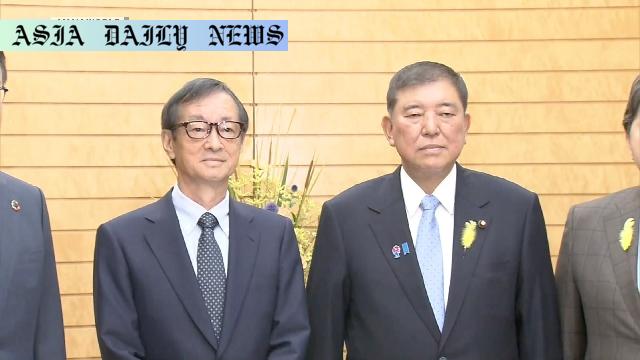Nippon Steel acquisition of US Steel serves as a model for Japan-US economic cooperation.
Nippon Steel finalized the acquisition of US Steel for $14.1 billion.
Japan’s PM Ishiba applauded the deal as a key example of beneficial Japan-US cooperation.
The acquisition aligns with economic policy trends emphasizing investment over tariffs.
The move aims to enhance US Steel production quality and revive manufacturing.

Nippon Steel’s Acquisition of US Steel: A Landmark Economic Move
Nippon Steel’s monumental acquisition of US Steel for $14.1 billion has become a major highlight in the evolving narrative of Japan-US economic collaboration. Hailed as a significant milestone, this strategic deal aligns with the overarching goal of fostering stronger economic ties between Japan and the United States. The move has been actively supported by Japan’s government, with Prime Minister Ishiba Shigeru publicly endorsing the deal as a blueprint for productive bilateral economic cooperation.
The acquisition, completed after months of negotiations with the Trump administration, reflects Nippon Steel’s commitment to enhancing the quality and reputation of US Steel products. Hashimoto Eiji, Chairman and CEO of Nippon Steel, emphasized the company’s intent to prove that Japan-US cooperation in the manufacturing sector is not just feasible but immensely beneficial. By blending Japanese operational expertise with US industrial infrastructure, this acquisition underscores the potential to revive American manufacturing, a goal prioritized by President Trump’s economic agenda.
The Strategic Significance of the Deal
Beyond its financial scope, the $14.1 billion deal carries symbolic importance for both nations. It represents a shift in priorities, moving from trade conflicts centered on tariffs to deeper, mutually beneficial investments. Prime Minister Ishiba highlighted this point, noting “Nippon Steel is a symbolic case” demonstrating how investment can replace protectionist measures as a means to strengthen economic ties. By investing in American manufacturing rather than engaging in trade restrictions, Japan has showcased a forward-thinking approach to economic diplomacy.
This acquisition also marks a significant win for Japan, as it solidifies its role as a key stakeholder in reviving and reshaping US industrial capabilities. This cooperative approach not only enhances Nippon Steel’s global footprint but also strengthens Japan’s reputation as a reliable partner in achieving economic growth and stability.
The Road Ahead: Challenges and Opportunities
Despite its potential benefits, the acquisition presents challenges that will require strategic foresight and collaboration. Nippon Steel is tasked with transforming US Steel into a more competitive entity while maintaining cost efficiency. The integration of Japanese manufacturing principles into US operations will be crucial to achieving this goal. By enhancing productivity and product quality, Nippon Steel aims to reinforce the value of such partnerships to the broader US manufacturing sector.
The acquisition can also inspire future cross-border collaborations, especially in industries where innovation and investment are critical. In this case, the global steel industry stands to benefit significantly from enhanced Japan-US cooperation. The focus on investment over tariffs sets a persuasive example for other countries grappling with trade challenges, showcasing how partnerships can lead to sustainable growth.
Commentary
A New Chapter in Japan-US Economic Relations
The acquisition of US Steel by Nippon Steel is more than just a financial transaction—it signifies a pivotal shift in how nations can collaborate to achieve economic goals. By embracing investment as a tool for strengthening relationships, Japan is actively redefining its role on the global economic stage. Prime Minister Ishiba’s strong support for this deal reflects Japan’s vision of fostering deeper, long-term partnerships rather than engaging in transactional trade practices.
Sparking Optimism in Manufacturing
One of the most compelling aspects of this acquisition is its potential to revive American manufacturing. With US Steel now a wholly owned subsidiary of Nippon Steel, there is immense opportunity to integrate operational efficiencies and innovative practices that have propelled Japanese manufacturing to global prominence. This collaboration could serve as a beacon for other industries, illustrating the benefits of cross-border synergy in tackling shared economic challenges.
The Broader Implications for Economic Diplomacy
On a broader scale, this deal underscores the importance of economic diplomacy in today’s interconnected world. By prioritizing collaborative investments over protectionist measures like tariffs, Japan and the US have set a precedent for other nations to follow. This approach not only bolsters economic growth but also strengthens geopolitical relationships, creating a more stable and interdependent global economy.
In conclusion, Nippon Steel’s acquisition of US Steel is a landmark event with far-reaching implications. As the two companies work to achieve their shared goals, they will likely inspire other industries to pursue similar collaborations. Ultimately, this deal represents a win-win for both countries, fostering innovation, growth, and economic stability.


